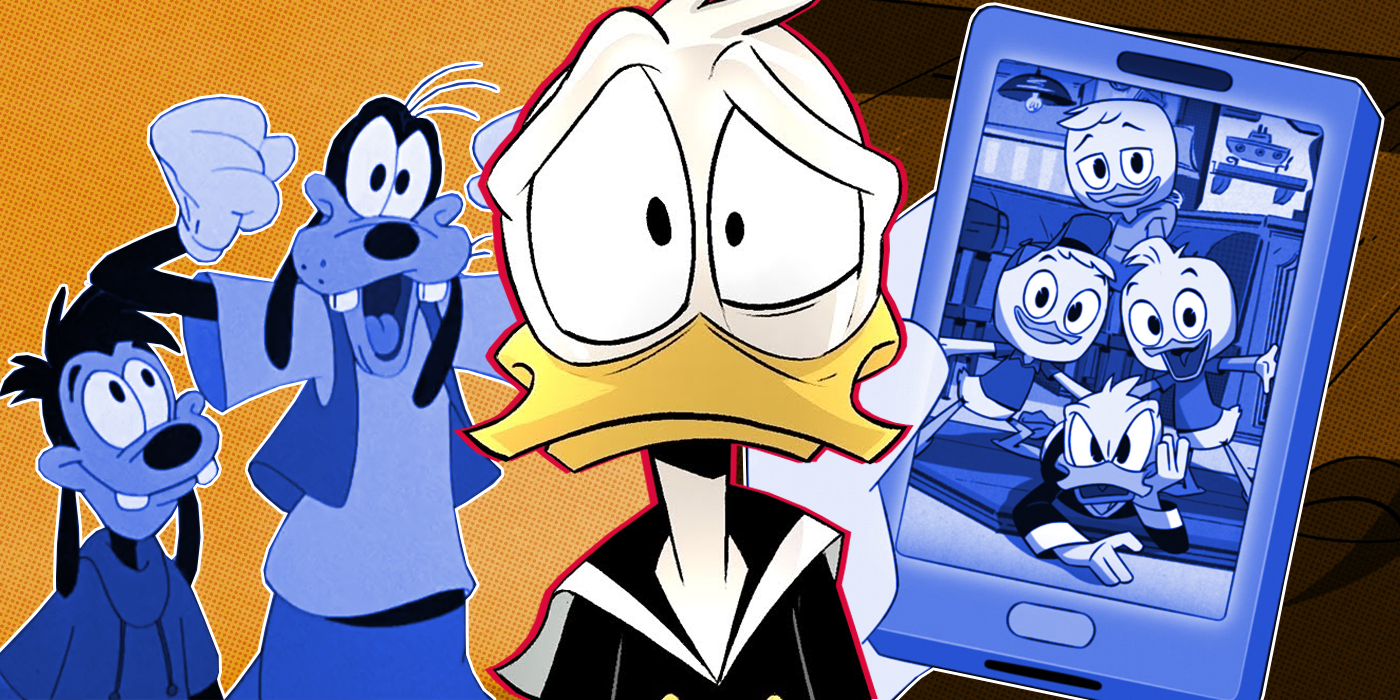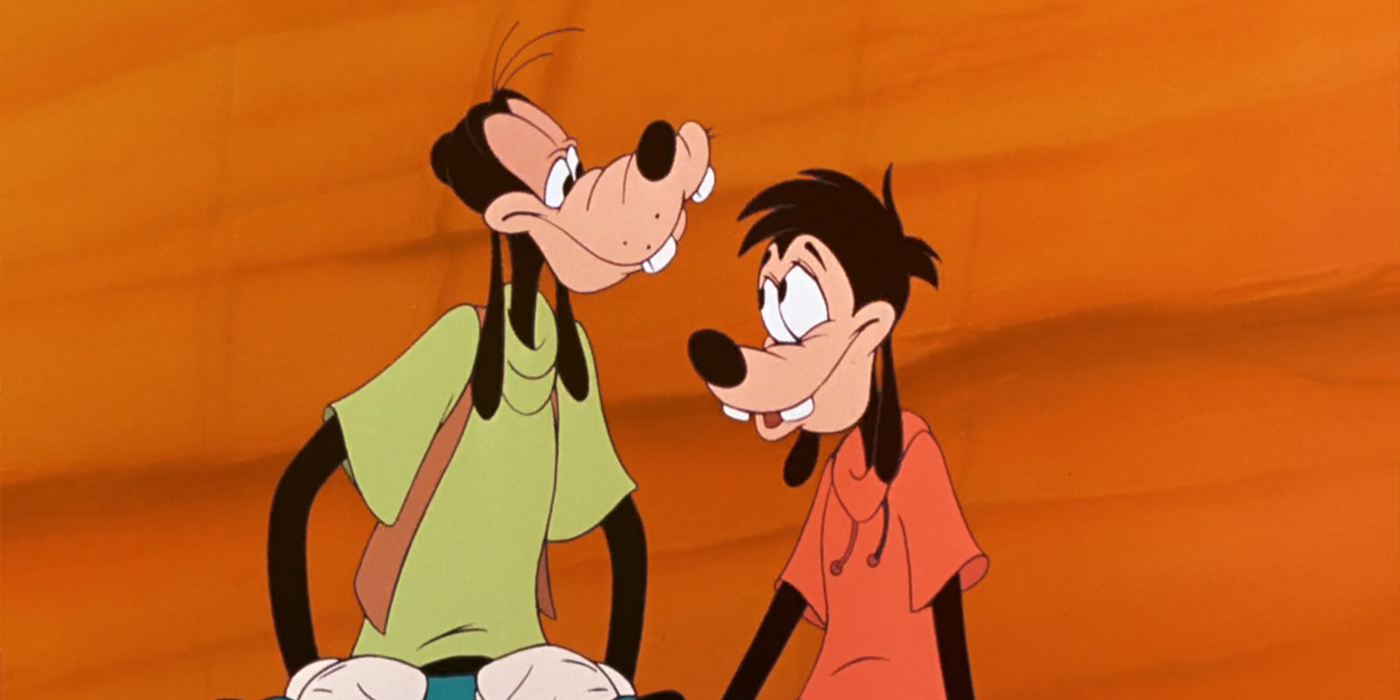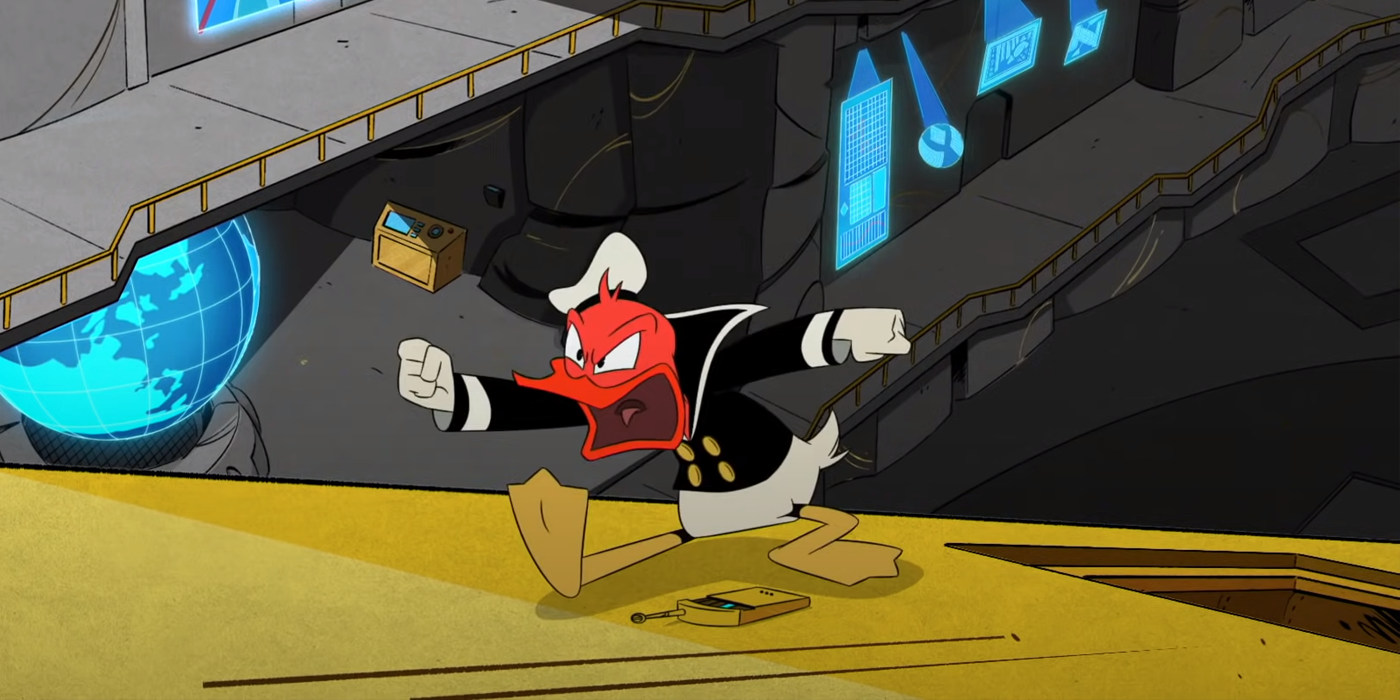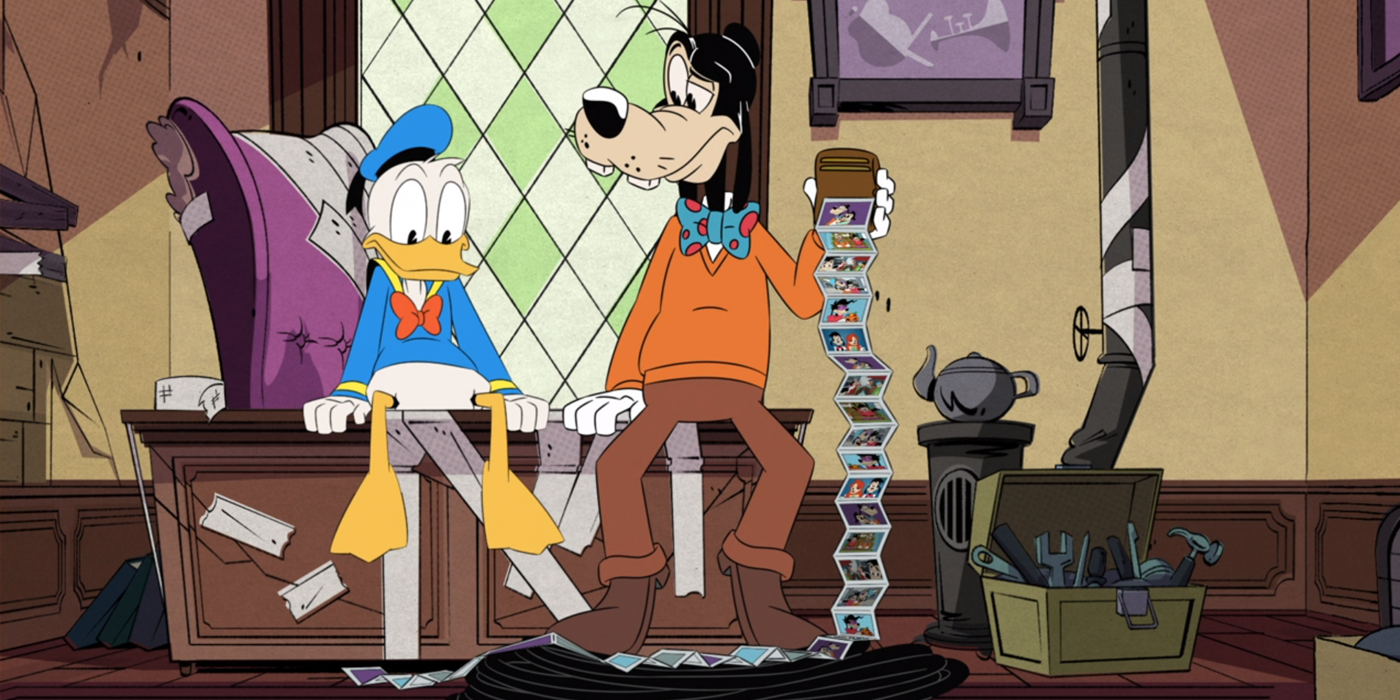Reinventing DuckTales for a new generation, developers Matt Youngberg and Francisco Angones went beyond the original program to craft a love letter to the entire Disney Afternoon programming block. The new incarnation of DuckTales, running from 2017 to 2021, also hued closer to the work of famed Disney comic creator Carl Barks' by including iconic Disney animated star Donald Duck as a prominent cast member, despite being previously relegated to a handful of appearances in the original series.
Reimagining and updating much of the original DuckTales' supporting characters, including Donald Duck himself, the show pushed the expectations of viewers and found new emotional depths, while still remaining true to Donald's classic depiction of put upon with a hair-trigger temper. In short, per Angones, his DuckTales sought "to do for Donald what (A) Goofy Movie did for Goofy." While they may have succeeded in developing and growing most of DuckTales' ensemble, they unfortunately fell short of their goals for Donald Duck himself.
Sandwiched in April 1995 between higher profile Disney blockbuster productions The Lion King and Pocahontas, A Goofy Movie was a modest, if unremarkable, mid-range success on initial release. Rescued from obscurity by cult fandom and word of mouth, it garnered a 2000 direct-to-video sequel and tributes and reappraisals in the years since. The film succeeded in the universality of its low-stakes story of accident-prone father Goofy (longtime performer Bill Farmer) trying to bond with teenaged son Max (Jason Marsden), the latter grappling with impressing his high school crush and fears of literally turning into his father.
A Goofy Movie also added a surprising depth to its lead by going beyond his one-note slapstick and showing that Disney's wackiest character had its biggest heart. And certainly, a few standout earworms on its soundtrack by pop sensation Powerline (Tevin Campbell) helped. As a benchmark for demonstrating the possibilities of a Disney animated archetype, the film is as solid a template as any for fellow leading man Donald Duck, and a new serialized DuckTales was a perfect venue for this exploration.
There had long been a consensus that there were in essence two versions of Donald Duck: Barks' well-spoken man of action and the original animated version saddled with a poor temperament and garbled speech pattern of actor Clarence Nash. Nash's hand-picked successor Tony Anselmo -- also a prolific animator with numerous Disney feature credits -- would be one of a very small handful of actors reprising their role in the new DuckTales, his timid and emotional Donald acting as a foil for the dauntless Uncle Scrooge and nephews Huey, Dewey and Louie.
Cannily, the first season finale "The Shadow War!" found a way of bringing Barks' Donald Duck to the series, with inventor Gyro Gearloose -- frustrated by Donald's unintelligibility -- equipping him with a "Barksian Modulator" providing the clarity of guest star Don Cheadle's commanding tone and fearlessness in line with his four-color counterpart. This seldom-seen adventurous side informed Donald's arc in the second season, with the possibility that his sister Della Duck had survived a seemingly fatal space flight.
Absent for several episodes, the Donald Duck focused episode "What Ever Happened to Donald Duck?!" continued the series' introspection, revealing his infamous short-temper and timidness to be coping mechanisms for fears that he might lose his nephews like he believed he had his sister. This provided the impetus for DuckTales' clearest example of giving Donald his A Goofy Movie moment, the third season episode "Quack Pack." Fittingly guest starring none other than Goofy, with direct visual reference to the film (although Powerline music had been featured in prior episodes), it was designed to be the animated equivalent of a sitcom 'bottle episode' with deliberate framing, dialogue-heavy scenes and a laugh track.
As the rest of the cast grew aware of the peculiarity surrounding them, a flashback to another death-defying adventure found a panicked Donald Duck's wish that his family eschewed such outings inadvertently granted via a nearby magic lamp he'd happened to be in contact with. Lamenting the state of his life to Goofy, Donald wondered if it was wrong to want his family to just be "normal," to which Goofy responded that normal meant something different to each family. All in all, a rather somber and genuine scene, effectively encapsulating this specific take on Donald Duck.
Unfortunately, "Quack Pack" saw the return of Cheadle as Donald, an amusing gag when done previously but giving the scene an odd disconnect where it both is and isn't Donald Duck. A Goofy Movie's pathos and drama would have surely lost their effectiveness if former Disney Chairman Jeffrey Katzenberg's request that Farmer read Goofy's lines with his natural speaking voice had not been abandoned early into production. It most likely would have turned out like "Quack Pack".
Youngberg, Angones and their vast team of writers, artists and performers had their work cut out for them when rebooting a ground-breaking and beloved Disney animated classic based on equally ground-breaking and beloved comics. Their efforts to add to the Duck corner of the Magic Kingdom by redefining nephews Huey, Dewey and Louie and finally introducing their mother Della, bringing more of Barks' work to a television audience and also paying homage to Disney's important, albeit often overlooked, TV history proved an unequivocal success. Unfortunately, the lofty goals of showing the untold profundity of Donald Duck might have been a step too far.




